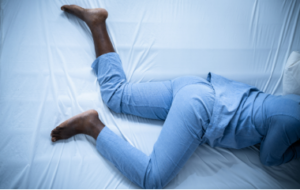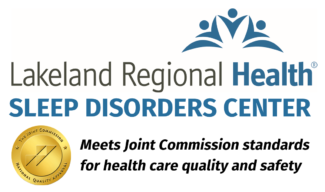 A neurological disorder that causes an irresistible urge to move the legs, Restless Legs Syndrome (RLS) is often paired with uncomfortable sensations like twitching, aching or the feeling of “creepy-crawlies.” Symptoms usually begin in the evening or when you’re in bed and may improve with walking, stretching, or massaging the legs.
A neurological disorder that causes an irresistible urge to move the legs, Restless Legs Syndrome (RLS) is often paired with uncomfortable sensations like twitching, aching or the feeling of “creepy-crawlies.” Symptoms usually begin in the evening or when you’re in bed and may improve with walking, stretching, or massaging the legs.
RLS can impact your sleep, one of the pillars of good health. If you have RLS, getting enough quality sleep can prove to be a challenge. The discomfort makes it hard to fall asleep and/or stay asleep. Losing sleep can impact your day-to-day life. You may find yourself feeling more irritable, struggling to concentrate, or experiencing fatigue.
A survey conducted by the RLS Foundation found that people with RLS experience depression and anxiety at four times the rate of the general U.S. population. With a connection between RLS and mental health, it is important to seek treatment early.
American Academy of Sleep Medicine (sleepeducation.org)
